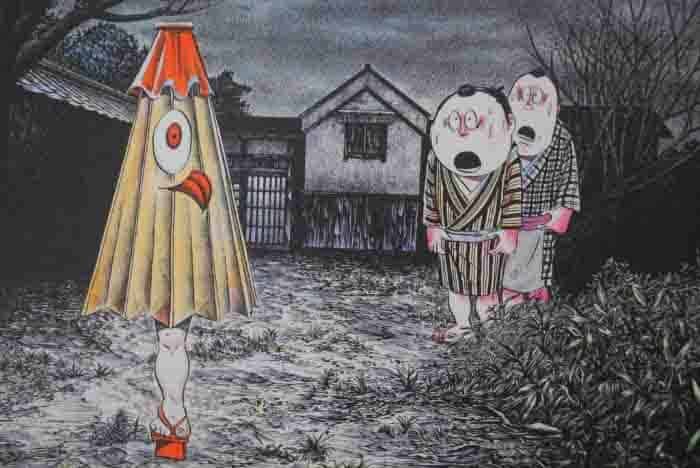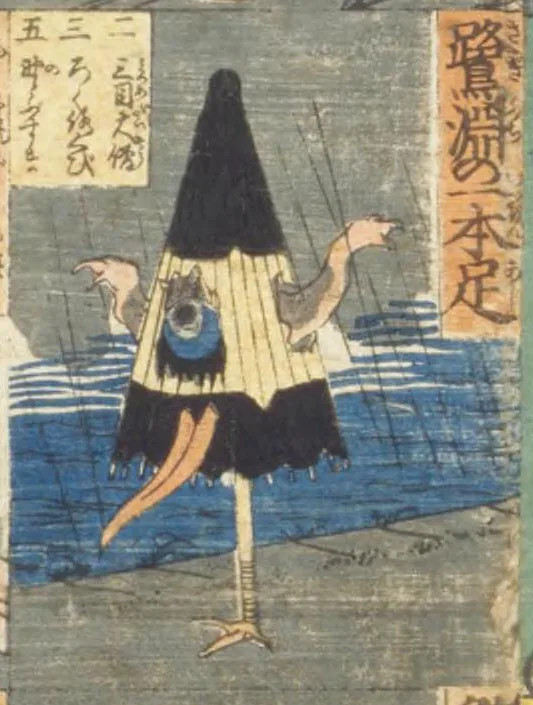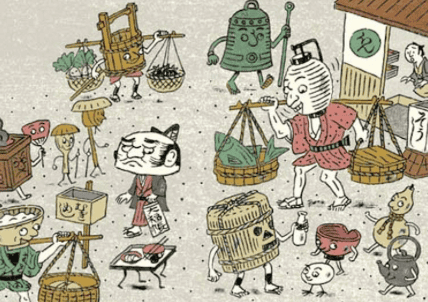
Introduction
Renting Tsukumogami is a traditional practice in Japanese folklore where individuals can rent or lease objects that have become inhabited by spirits known as Tsukumogami. These spirits are believed to possess the objects after they reach a certain age or have been neglected. Renting allows people to temporarily borrow these objects and benefit from their supernatural powers or abilities.
The Fascinating Tradition of Renting Tsukumogami in Japanese Culture
The fascinating tradition of renting tsukumogami in Japanese culture is a unique practice that dates back centuries. Tsukumogami are objects that have reached a hundred years of age and have gained a spirit or soul. These objects, ranging from everyday items like teapots and umbrellas to more elaborate pieces like kimonos and furniture, are believed to come to life and possess supernatural powers.
The concept of tsukumogami originated from the belief that objects that have been used for a long time develop a soul. This belief is deeply rooted in Shintoism, the indigenous religion of Japan, which holds that everything in the world has a spirit. It is believed that when an object reaches its hundredth birthday, it awakens and becomes a tsukumogami.

Renting tsukumogami is a way for people to interact with these spirits and benefit from their powers. The practice involves borrowing from a temple or shrine for a specific period of time. The borrower must treat the tsukumogami with respect and return it to the temple or shrine once the agreed-upon time is over.
One of the most popular reasons for renting is for protection against evil spirits and bad luck. It is believed that these spirits can ward off misfortune and bring good luck to the borrower. People often rent during important life events such as weddings, births, or starting a new business to ensure a prosperous future.

Another reason for renting is for their unique abilities. Each tsukumogami is said to possess a specific power or skill. For example in the form of a teapot is believed to bring good fortune and wealth, while a in the form of a kimono is said to enhance beauty and grace. By renting these objects, people hope to harness their powers and improve their lives.
The process of renting is not as simple as borrowing any ordinary object. There are certain rituals and protocols that must be followed. Before renting, the borrower must cleanse themselves and purify their intentions. They must then visit a temple or shrine that specializes in tsukumogami and make a formal request to borrow one.

Once the is in their possession, the borrower must treat it with utmost respect. They must keep it clean and in good condition, and never use it for any purpose other than its intended one. It is believed that mistreating a tsukumogami can result in bad luck or even angering the spirit within.
At the end of the rental period, the borrower must return to the temple or shrine. They must express their gratitude and offer a small token of appreciation, such as a monetary donation or a prayer. This act of returning the tsukumogami signifies the end of the borrowing period and ensures a harmonious relationship between the borrower and the spirit.
Renting is a fascinating tradition that continues to be practiced in Japan today. It offers a unique way for people to connect with the spiritual world and seek blessings and protection. Whether it is for good luck, special abilities, or simply to experience the mystical world of tsukumogami, renting these objects provides a glimpse into the rich cultural heritage of Japan and the belief in the supernatural.
Conclusion for Tsukumogami
In conclusion, renting refers to the practice of borrowing or leasing these supernatural objects from the Edo period in Japan. It is believed that possess a spirit or soul after being used for a hundred years. Renting Tsukumogami allows individuals to experience the unique and mystical qualities of these objects, while also respecting their history and cultural significance.
What are Tsukumogami in Japanese folklore?
Tsukumogami are objects that have gained spirits or consciousness after being used for a long time, typically reaching their hundredth birthday. They are believed to possess supernatural abilities and personalities.
Can Tsukumogami be rented in Japanese culture?
Yes, according to folklore, it is said that certain individuals, such as priests or sorcerers, have the ability to rent or control Tsukumogami for various purposes.
What is the significance of renting Tsukumogami?
Renting Tsukumogami is often associated with harnessing their supernatural powers for protection, luck, or other benefits. It may also involve placating or controlling them to prevent mischief or harm.
How does one go about renting a Tsukumogami?
The process of renting a Tsukumogami may vary depending on the tradition or belief system. It could involve rituals, incantations, or offerings to invoke the spirit of the object and establish a contract.
What are some common reasons for renting Tsukumogami?
Common reasons for renting Tsukumogami include seeking protection from malevolent spirits or curses, attracting good fortune, enhancing one’s skills or abilities, or gaining insight into hidden knowledge.
Are there specific objects that are more likely to become Tsukumogami?
Objects that are often used or cherished by humans, such as tools, household items, or heirlooms, are believed to have a higher likelihood of becoming Tsukumogami.
Are there any risks or drawbacks to renting Tsukumogami?
Renting Tsukumogami may come with risks, such as angering or antagonizing the spirits, inadvertently causing harm to oneself or others, or becoming dependent on their powers.
Can Tsukumogami be returned or released after being rented?
The process of returning or releasing a rented Tsukumogami may also involve rituals or ceremonies to respectfully sever the bond and ensure that the spirit returns to its original state.
Are there any famous legends or stories involving rented Tsukumogami?
Yes, there are several famous legends and stories in Japanese folklore that involve rented Tsukumogami, often depicting their interactions with humans and the consequences of their actions.
What is the cultural significance of Tsukumogami in Japan?
Tsukumogami hold cultural significance as symbols of the animistic beliefs and reverence for objects found in Japanese folklore. They also serve as cautionary tales about the potential consequences of mistreating or discarding objects.

[…] and manga have become key ways to introduce yokai to audiences worldwide. Shows like “Demon Slayer” highlight epic fights between humans […]